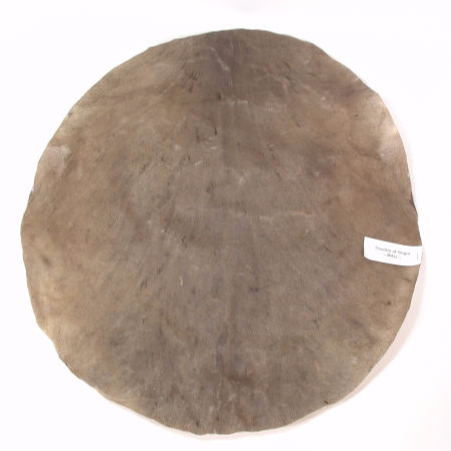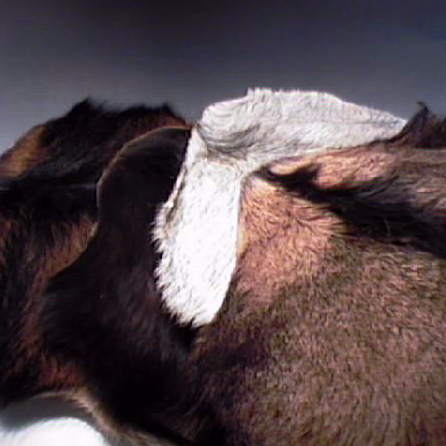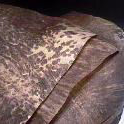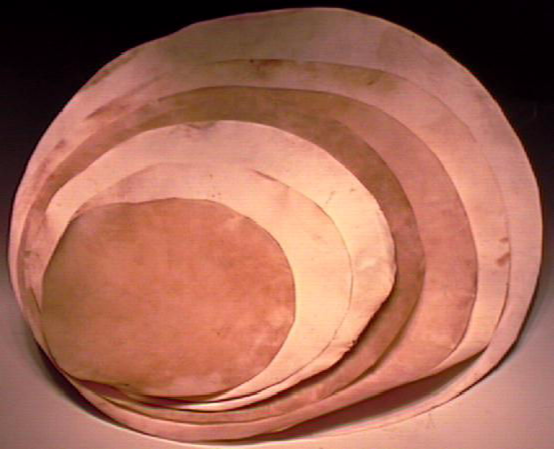
Mali skins can be found "rough skived" (the hair is scraped off) or as hair on. I have mine all airshipped so they are all cut into spine centered circles to save weight. Mali skins are tough, even thickness skins. They produce a rich and balanced sound profile. With hair, they tend to be brown, brown and white, black and white and often spotted or "pinto".

Guinea skins can be found "rough skived" (the hair is scraped off) or as hair on. As pictured they often have a dark dorsal spine line, and can have fairly long hair. Occaisionally they can be black, brown, and white speckled. They have a sharp sound, emphasizing the slap, and extremely tough. Skins can come from very small to large in size.

Ivory Coast skins are can be found "rough skived" (the hair is scraped off) or as hair on. Hair off you often see these as rectangles, with broad swipes where the hair is skived with a large knife. I have gotten these light, and almost as heavy as calf. These are a little oilier than other skins, and so now quite as tough. They produce a balnced sound but a little muted for my taste.

